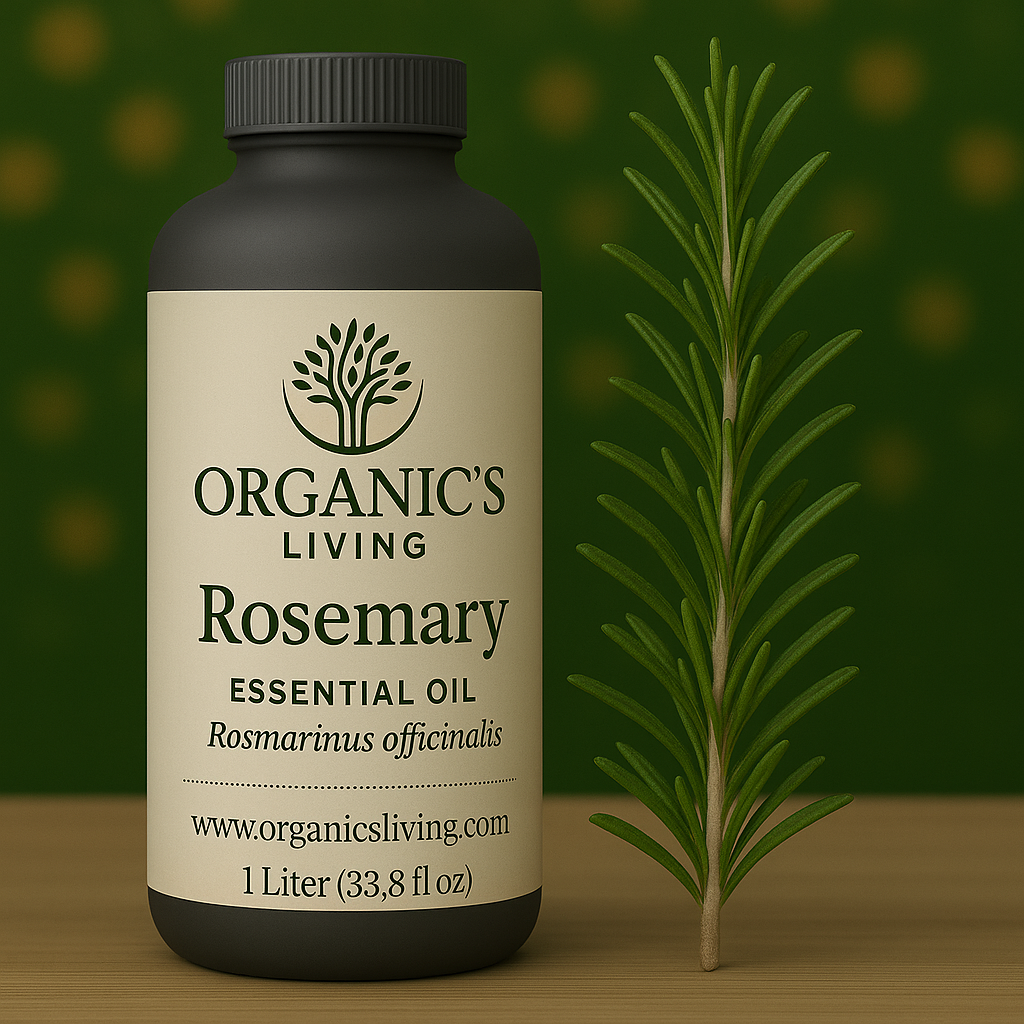Organics Living
Rosemary Essential Oil – 100% Pure & Natural for Hair Growth, Skin & Focus | Organic’s Living
Rosemary Essential Oil – 100% Pure & Natural for Hair Growth, Skin & Focus | Organic’s Living
🚚 FREE SHIPPING ON ORDERS ABOVE PKR 5,000
Couldn't load pickup availability
Experience the power of pure rosemary essential oil, steam-distilled to preserve its herbal potency. Known for promoting hair growth, enhancing memory, and clarifying skin, this oil is a must-have for your natural care routine.
Ideal for aromatherapy, scalp massage, and DIY skin care, our rosemary oil is free from chemicals and 100% pure.
Why Choose Organic’s Living Rosemary Oil?
- Hair Growth: Helps stimulate scalp circulation and reduces hair thinning
- Skin Benefits: Clears acne, tightens pores, and improves skin tone
- Mental Focus: Enhances concentration and relieves mental fatigue
- 100% Pure & Natural – Steam Distilled
- Non-Edible – External Use Only
Bulk Orders Available
We supply bulk rosemary essential oil for salons, wellness brands, and manufacturers.
How to Use:
- Hair Care: Mix with carrier oil and massage into scalp 2–3 times a week
- Aromatherapy: Add a few drops to diffuser for mental clarity and energy
- Skincare: Dilute with carrier oil to apply on acne-prone or oily skin
Caution:
Always perform a patch test before use. For external use only. Keep away from eyes and direct sunlight.
Packaging Sizes:
10ml | 30ml | 100ml | 1 Liter} Bulk Options Available
🌿 Eco-Conscious & Pure – Organic’s Living
Our rosemary essential oil is responsibly sourced and packaged with care, ensuring maximum purity, potency, and sustainability.
Share



